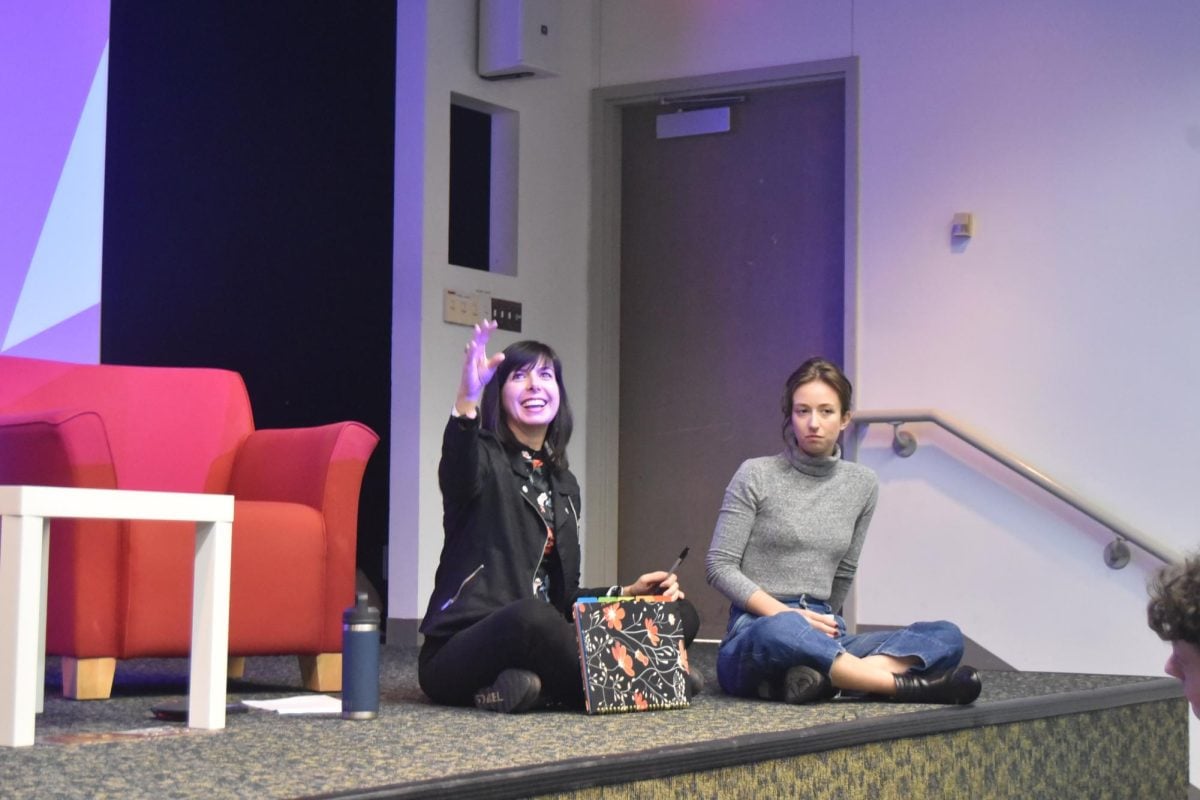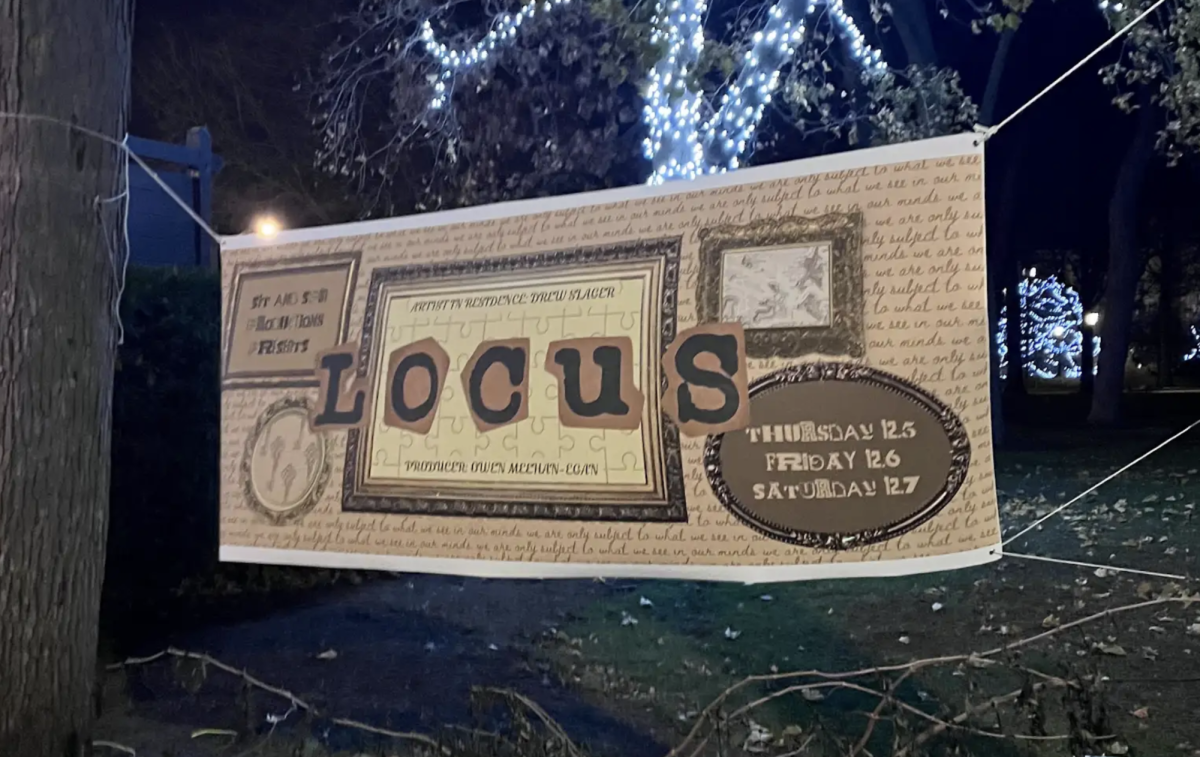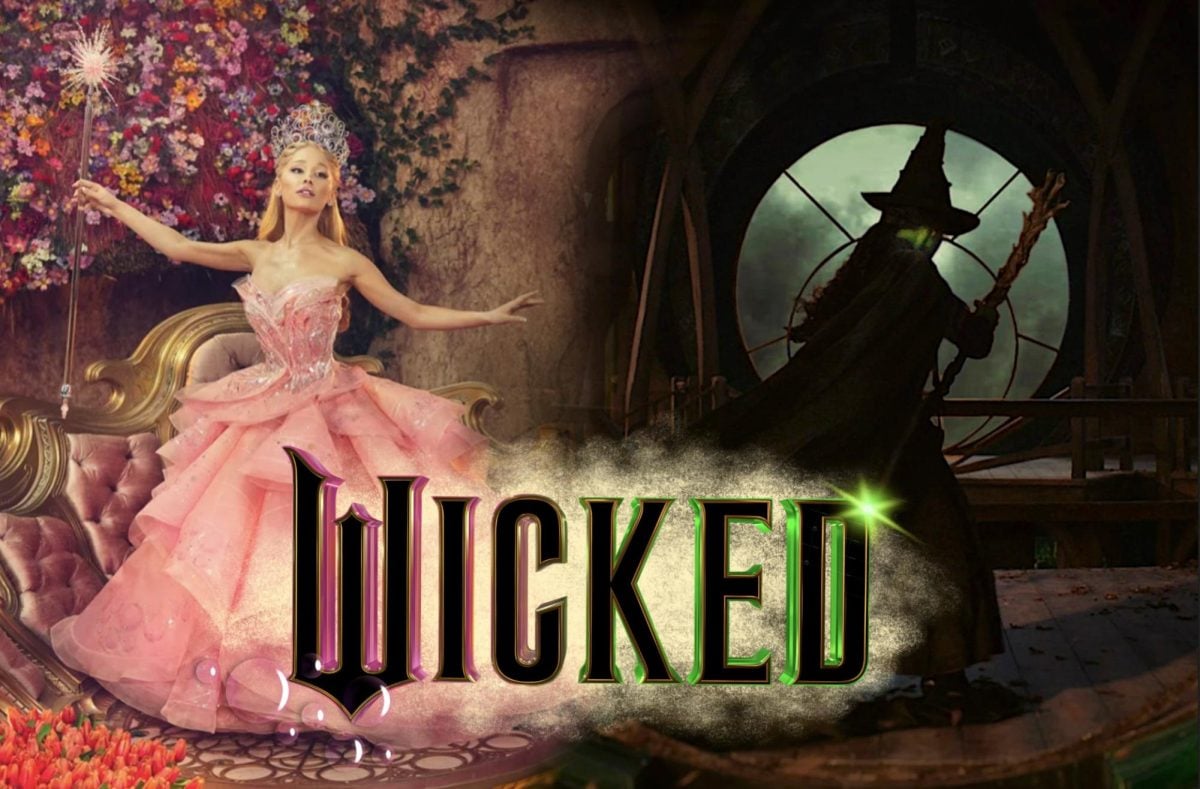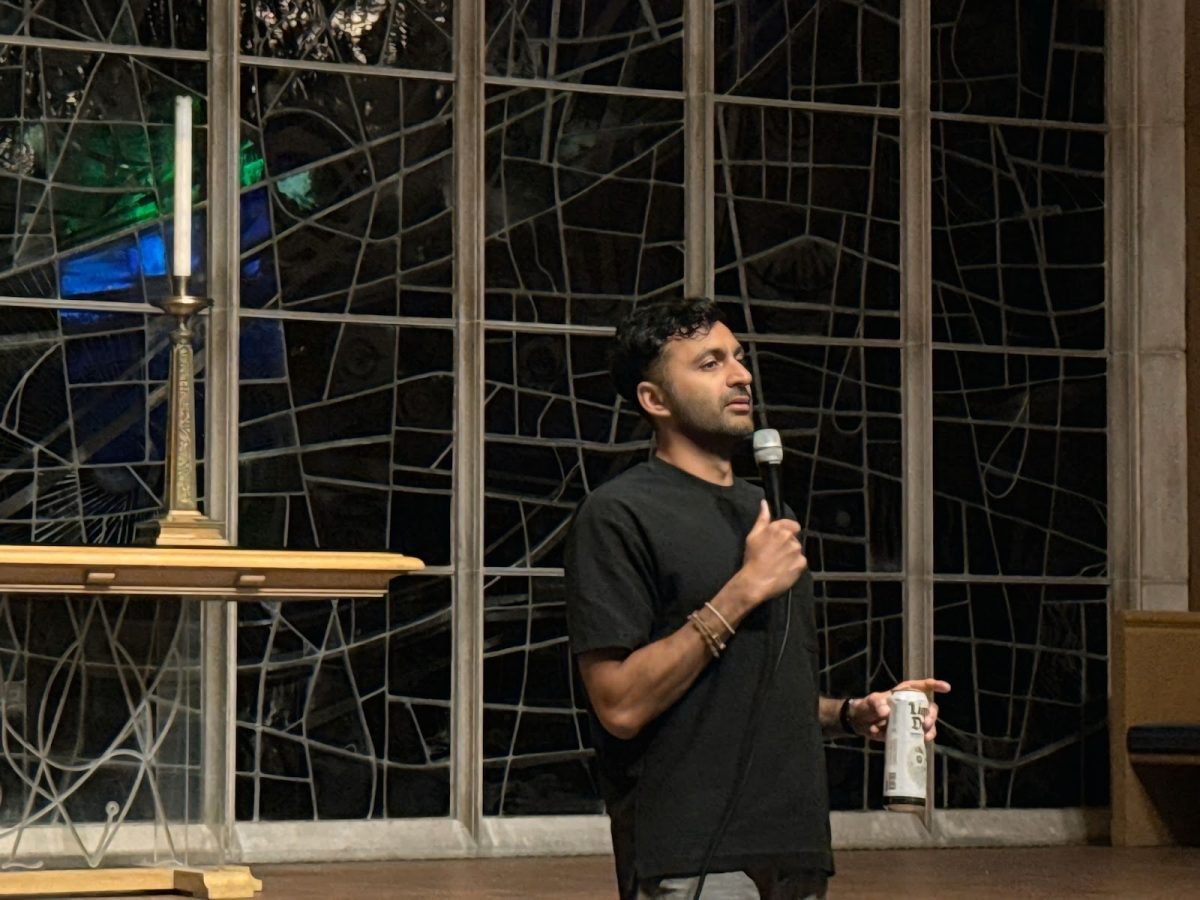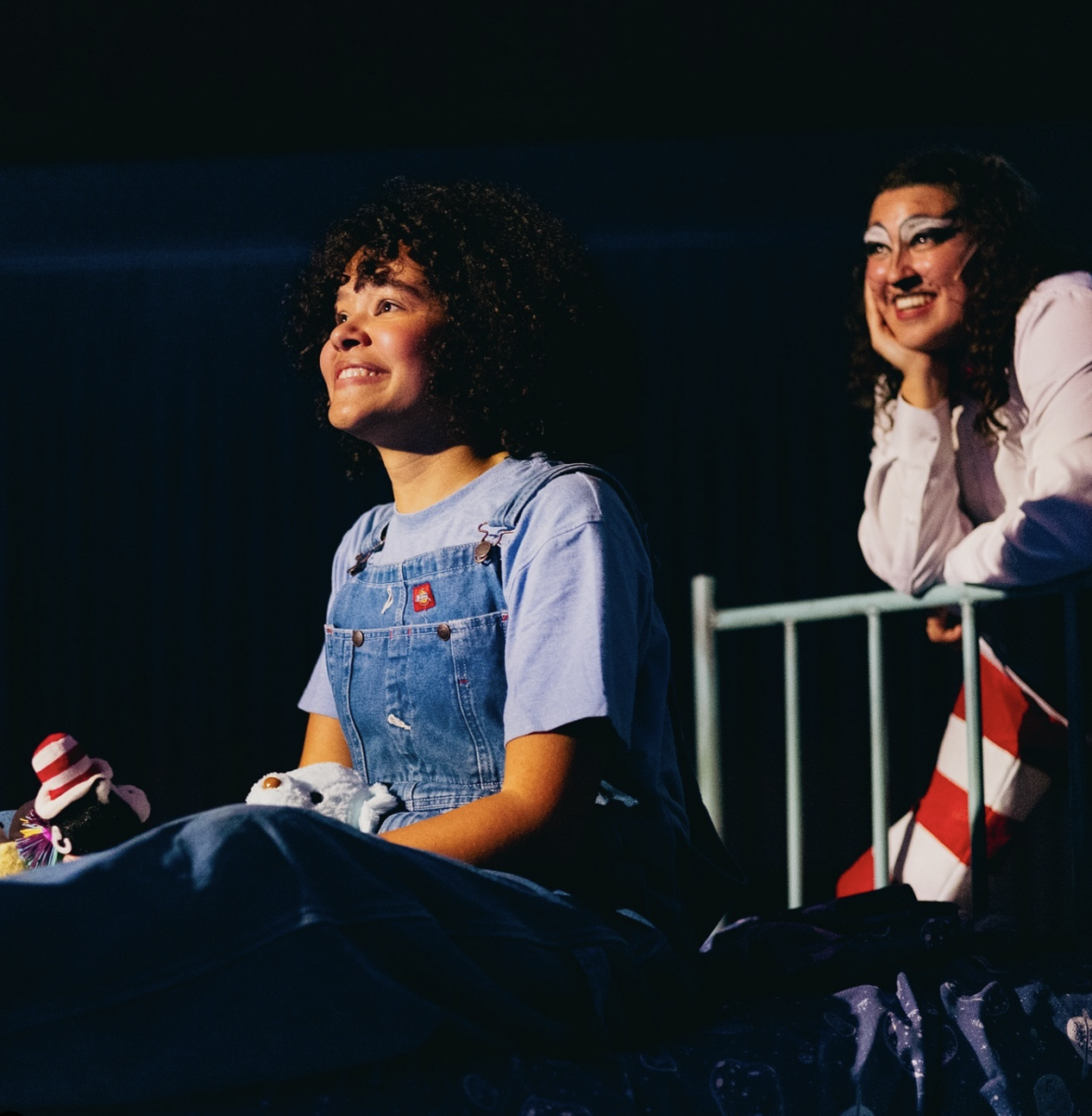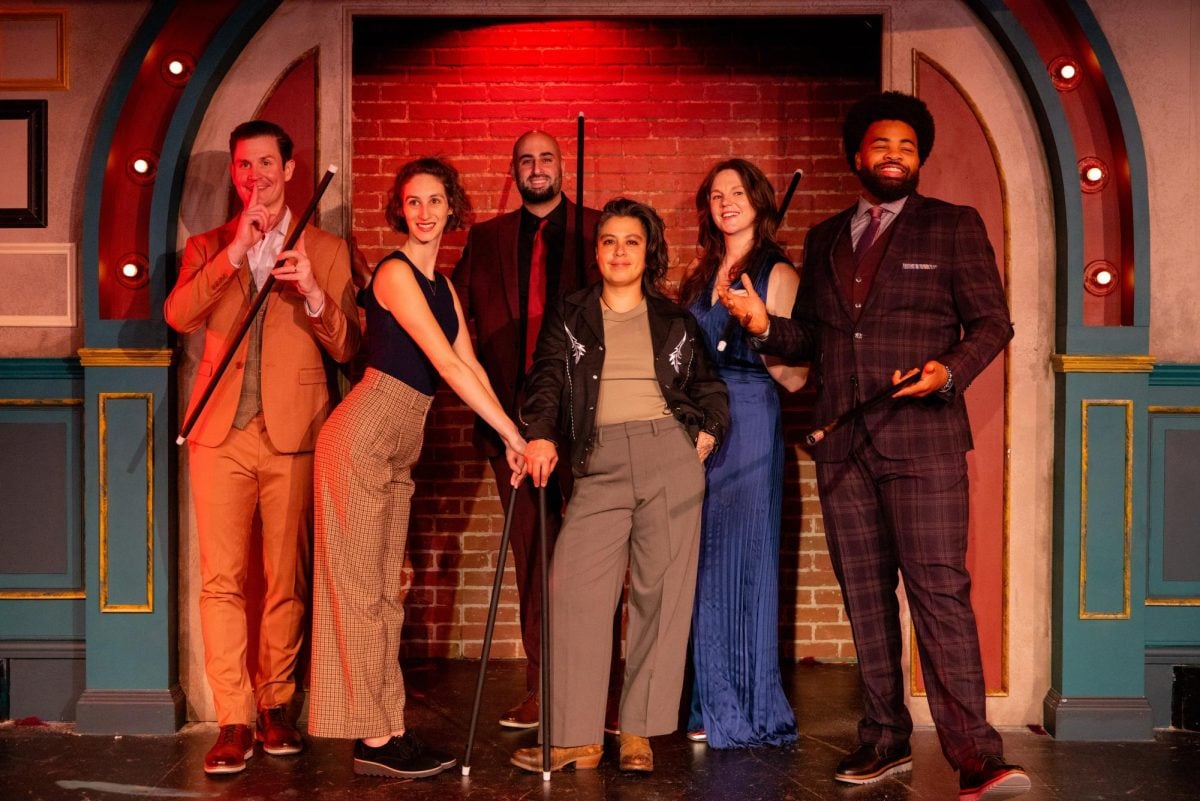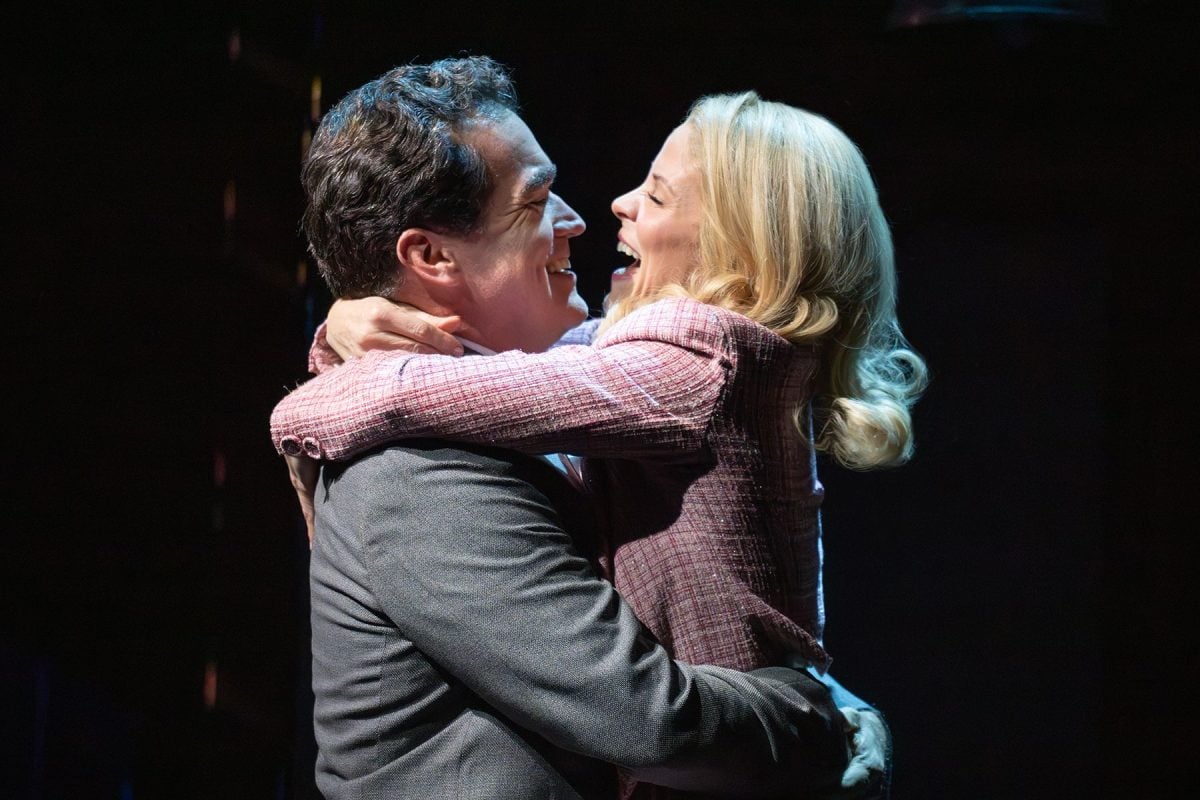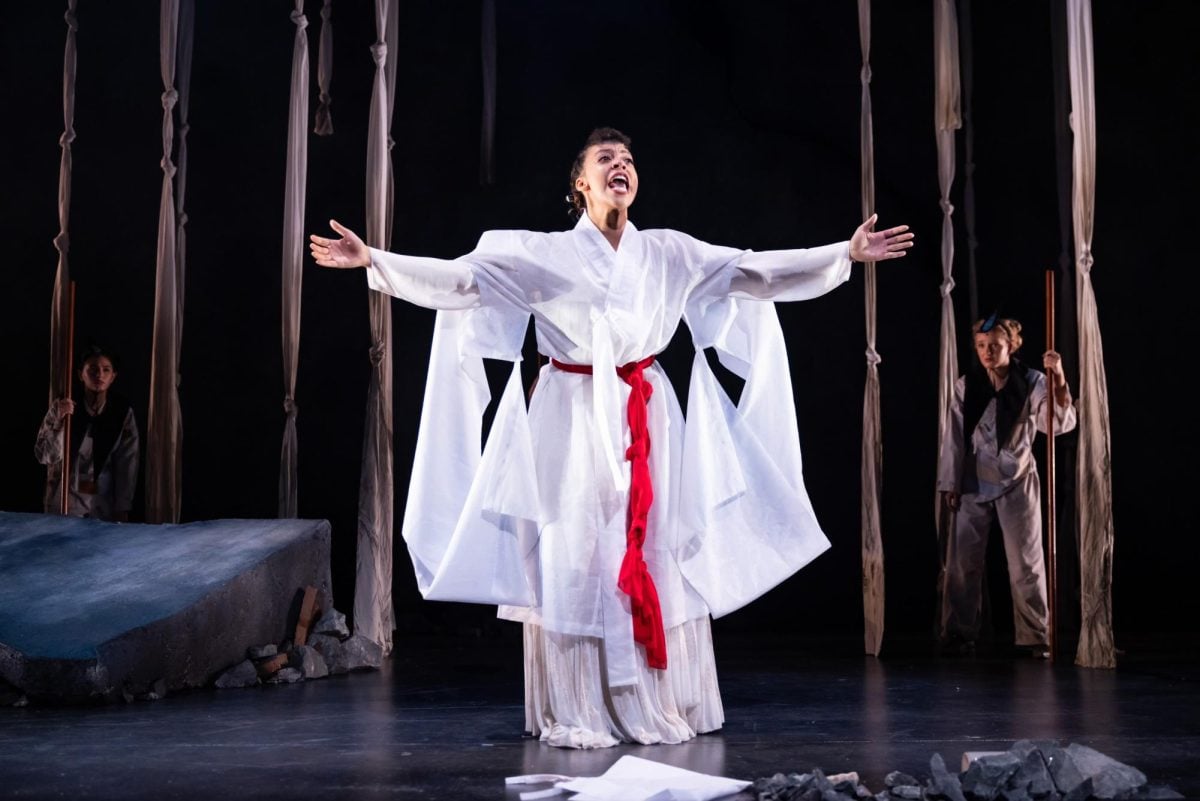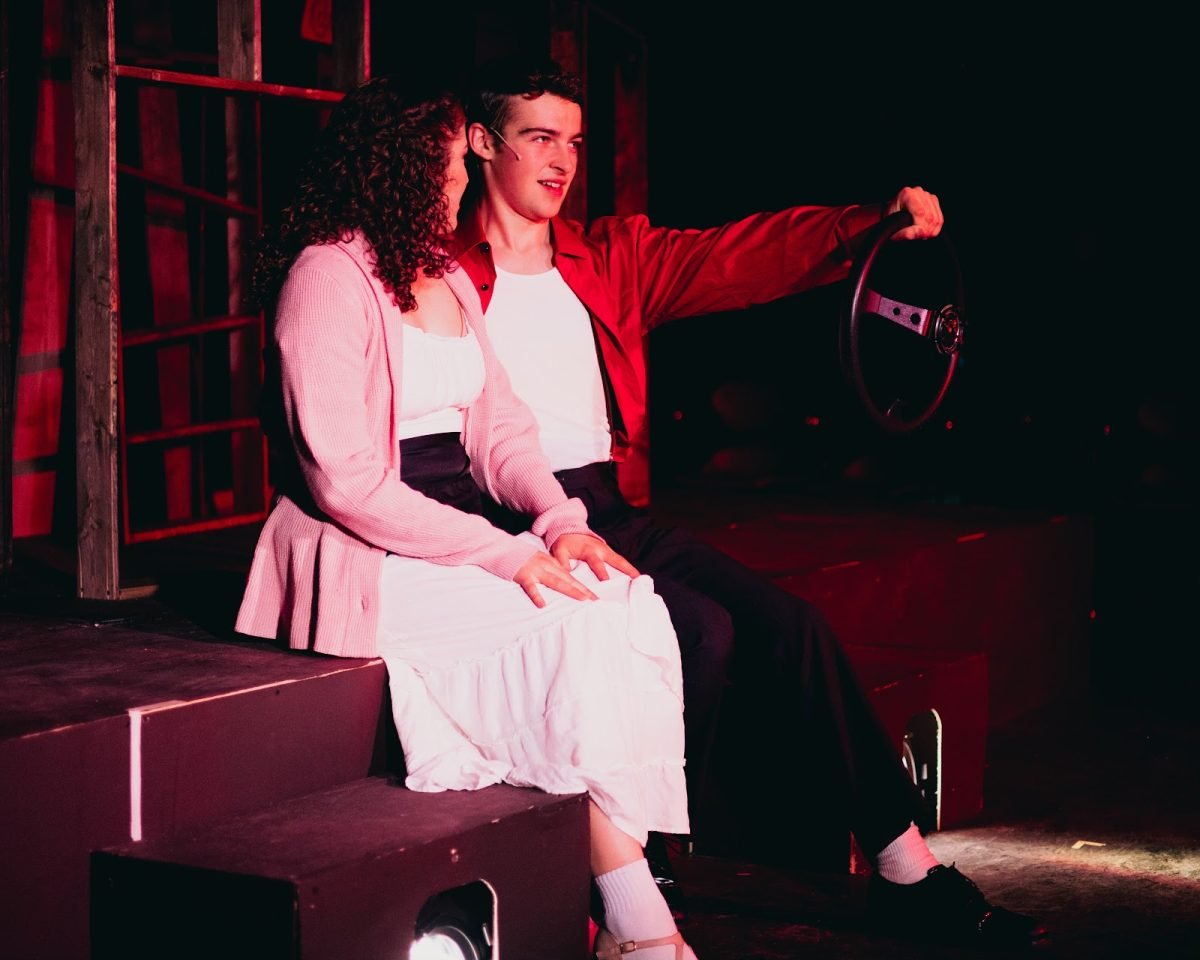Sitting cross-legged in front of a pair of arranged armchairs, Selina Fillinger (Communication ’16) discussed her creative process as a Los Angeles-based writer at a moderated conversation in John J. Louis Hall Friday.
To give a sense of what Fillinger was like as a student, theatre Prof. Laura Schellhardt began with a story about “The Armor Plays: Cinched and Strapped,” which Fillinger wrote for Schellhardt’s playwriting class while a student at Northwestern.
“I had read at least two or three of Selina’s assignments at that point. And I remember thinking, ‘Okay, I’m sure that you’re a wonderful performer, and I’m also sure that writing may be in your future…” Schellhardt said. “The reason it’s funny to me is you were still saying ‘I’m gonna be a performer. I’m just writing things for fun.’”
From there, Fillinger participated in the theatre production-based Next Step Program, creating a play with Northlight Theatre in Chicago. “Faceless” launched before Fillinger had even graduated from NU, she said
Her most recent play, “POTUS: Or, Behind Every Great Dumbass are Seven Women Trying to Keep Him Alive,” opened on Broadway on April 27, 2022. The play met widespread acclaim, hailed as “a snappy and intermittently hilarious farce” by The New York Times.
“There isn’t actually enough hours in the day to do all those things. But when you are inspired and lit up somehow, it just happens,” Fillinger said. “There’s some weird magic that happens where time just expands when you’re working on the right project.”
Senior and event attendee Mantra Radhakrishnan said she planned to see “POTUS” that weekend at the Steppenwolf Theatre mainly due to the play’s emphasis on physical comedy. She said she appreciates how Fillinger takes unique risks in her work.
“It’s really easy to put a lot on one specific opportunity and be like, ‘Oh, this could make or break my career,’ and feel like you’re trying to model other people’s careers or model other people’s steps,” Radhakrishnan said. “So, I really liked what she said about (how) there might not be a model for what you’re trying to do.”
Fillinger said diversifying her creative process between theater, TV and film was essential. She said she just turned in the pilot for a TV adaptation of an unpublished Sheila Heti book, which she had that “glowy feeling” about.
“I was in contact with (Heti), which was at times harrowing, because I just loved and admired her so much that it was absolutely devastating to show her my half baked drafts,” she said. “I also felt really strongly that it was a sign of respect, and I wanted her to feel safe.”
According to Schellhardt, she rarely meets students who work as hard as Fillinger to turn opportunities like these into launching points.
Fillinger ended the conversation by saying she hopes the next generation of artists committed themselves to consuming and creating longform media.
“In some ways, of course, our role is very fragile, and we are running out of time, but I don’t think the answer is more stunted thoughts, right?” she said. “The answer is more sophisticated, complex, longer thoughts, and that’s the best thing that we can do for art and just for each other.”
Email: [email protected]
Twitter: @jillian_moore7
Related Stories:
— Lights, camera, action: RTVF students take film to Prague
